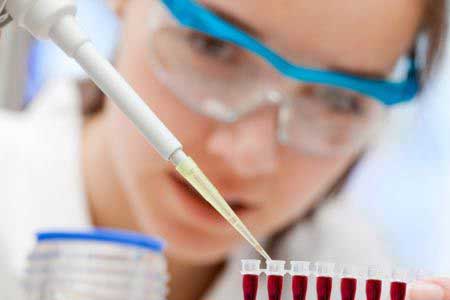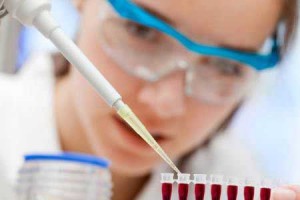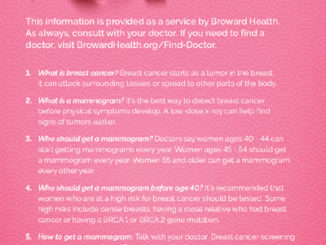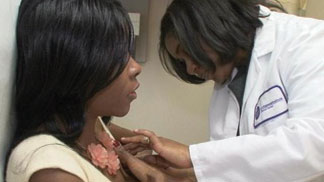
 Surely if there was a blood test to determine whether or not a woman had breast cancer many women could add years to their lives and in some cases their lives may be saved. But women who want to know if they have cancer shouldn’t fret any longer, because help is on the way and now there’s a blood test called the CellSearch test to predict breast cancer.
Surely if there was a blood test to determine whether or not a woman had breast cancer many women could add years to their lives and in some cases their lives may be saved. But women who want to know if they have cancer shouldn’t fret any longer, because help is on the way and now there’s a blood test called the CellSearch test to predict breast cancer.
“It is currently available for metastatic breast cancer, but not for non-metastatic except in a research study setting,” said Dr. Anthony Lucci, professor of surgical oncology at the University of Texas, Ander-son Cancer Center in Houston. “Hopefully it will be known which patients can benefit from this test in the near future and then it would be widely available.” Lucci and his colleagues observed 302 patients with operable breast cancer and examined them with a basic blood test and identified circulating tumor cells in 24 percent of the study group. The findings entitled “Circulating tumor cells in non-metastatic breast cancer: a prospective study” was published in June’s issue of Lancet Oncology.
Their previous research explored circulating tumor cells in the blood of patients who had metastatic breast cancer or breast cancer that has spread. The cells are shed by tumors and are thought to cause cancer if they latch on to another area of the body. Further analysis revealed the presence of the cells predicted disease progression and the patient’s overall survival rate. “It is a good thing to be able to predict disease progression but we need to know which drugs can kill these cells and improve outcome before we start treating every patient who has circulating tumor cells, Lucci said. “Other factors like lymph node status and tumor size also predict outcome, but there’s no other blood tests that do.
Fifteen percent of patients who tested positive for the cells had relapsing breast cancer, while 10 percent died during the four-year-study period. That compares to three percent of patients who didn’t test for the cells that relapsed and two percent that died during the study. For patients with a higher concentration of circulating tumors found in the blood – with three of the cells present – 31 percent of them died or relapsed during the study. He says that the fewer number of cells the less chance of recurrence. “The presence of circulating tumors was a predictor of worse outcome, earlier relapse, etc., patients with three or more circulating tumor cells had roughly 11 times higher chance of dying from breast cancer than those who did not have these,” Lucci said. “But this is not absolute – not every patient with circulating tumor cells recurred or died. We are trying to figure out which ones will and will not form metastasis but that may take time to elucidate.”
Another study published in the Proceedings of the National Academy of Sciences found fetal exposure to BPA, a plastic additive found in some food pack-aging was dangerous. Monkeys exposed as fetuses to BPA – bis phenol A – appeared to have an increased risk of breast cancer. Primates are more similar to humans reinforces the notion that BPA could contribute to breast cancer in women.




Be the first to comment